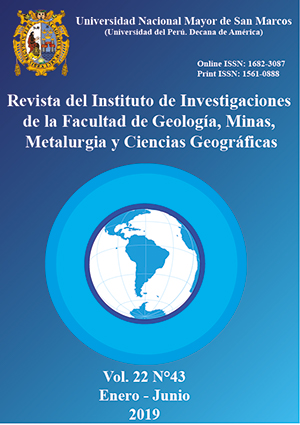Social responsibility shared between state, mining companies and communities. The biopolitic and geoetic reflection
DOI:
https://doi.org/10.15381/iigeo.v22i43.16695Keywords:
Biopolitics; bioethics; shared social responsibility; socio-environmental conflicts; Conga mining projectAbstract
The interdisciplinary reflection on socio-environmental conflicts or known as anti-mining activity in the country, is relevant from the point of view of the importance of the national economy and its relationship with extractive activities in the country. The analysis of the problem from different epistemological perspectives, interpretative or hermeneutics, allows to increase the comprehension and possibilities of solution of socio-environmental conflicts. The issue gained importance when it became apparent in the facts that socio-environmental conflicts have the capacity of political incidence to stop important mining projects, in the context of an increase in investments in mining projects in the years 1995-2012. the theme and the case study of the failed Conga mining project in the Cajamarca region (2012), will validate the importance of a novel interpretative analytical approach from concepts such as biopolitics, geoethics and shared social responsibility, a concept that leads to the recognition of the need for shared social responsibility between the state, mining companies and communities.
Downloads
Published
Issue
Section
License
Copyright (c) 2019 Carlos Alberto Toledo Gutierrez

This work is licensed under a Creative Commons Attribution-NonCommercial-ShareAlike 4.0 International License.
AUTHORS RETAIN THEIR RIGHTS:
a. Authors retain their trade mark rights and patent, and also on any process or procedure described in the article.
b. Authors retain their right to share, copy, distribute, perform and publicly communicate their article (eg, to place their article in an institutional repository or publish it in a book), with an acknowledgment of its initial publication in the Rev. Inst. investig. Fac. minas metal cienc. geogr.
c. Authors retain theirs right to make a subsequent publication of their work, to use the article or any part thereof (eg a compilation of his papers, lecture notes, thesis, or a book), always indicating the source of publication (the originator of the work, journal, volume, number and date).






